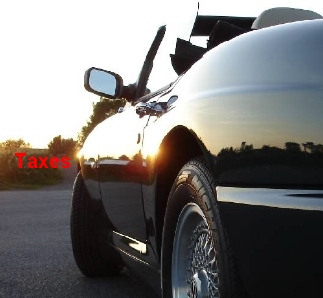Tax
changes coming?
The Spending Review 2020 document has all the details of the
capital projects for the transport sector, including the tunnel on
the A3030 near Stonehenge and details of the environmental measures
including the ban on new fossil fuelled cars by 2030 announced last
week.
See our NEWS item
OTS Capital Gains Tax Review: Simplifying by design (Policy paper)
This new report, written in response to the Chancellor’s
request in July 2020, highlights ways Capital Gains Tax can distort
behaviour, and sets out a framework of policy choice about the design
of the tax for Government.
OTS
CGT Review report
See our MGV8 Price Guide & Market Review
Market review & price guide update
Check
a car with a VES search
on the GOV.UK website. More
Check
a car's MOT history on the GOV.UK website.
More
Posted: 201103
|
 |
Yesterday
the Chancellor set out details of the UK Government's Spending
Review but it was not a Budget statement, so the likely tax
changes will follow, presumably in the next Budget statement
in Spring 2021. With the unprecedented level of spending by
the UK Government to deal with the extraordinary social, health
service and economic difficulties during the Covid pandemic,
there has been massive borrowing to pay for it. But it's inevitable
the process of repairing the UK finances will begin with tax
rises likely from 2021. But faced with the size of the financial
difficulties, the Chancellor will review not only higher
tax rates but also it is likely he will review a wider scope
of taxes to generate the levels of tax revenue needed. Just
what that wider scope might include has not been announced but
on the Radio 4 Today programme this morning Rishi Sunak firmly
declined to be drawn at this stage.
Here we consider some of the tax options that could affect classic
car owners and some of the key issues. |
| Over
the last week several V8 members have been in contact discussing
what tax options the Chancellor might consider that could hit
classic car owners in 2021 and what key issues might arise before
any option could become part of a package of tax measures in
a future Budget statement.
Capital Gains
Tax on the sale of classic cars
Talk of a review or an overhaul of Capital Gains Tax (CGT)
followed reports that Rishi Sunak had already asked the Office
of Tax Simplification (OTS) to look at CGT. In their report
the OTS identified older cars as "chattels" (a tangible
moveable asset), a term that covers valuable assets, like
paintings and other works of art, watches and jewellery that
are often chosen not only for their attraction but also as
investments. Whilst chattels are usually expected to depreciate
over time and are exempt from CGT - typically a car is seen
as a depreciating asset for tax purposes as they are assumed
to have a limited useful life, some "wasting assets".
Cars have always been specifically exempt from CGT because
the vast majority of car owners make a regular loss on buying,
running and disposing of their cars and the Treasury would
not want these losses available to offset gains on other investments.
No distinction is currently made between modern and classic
cars.
Classic car values over recent years
Clearly values of many classic cars have risen over the last
10 years or so, not only exceptional increases with the "cherries"
bought by investors (like Astons, Ferraris and Jaguars), but
also significant increases for mainstream classics like MGV8s
(around a 115% uplift in that period) and even with hot hatchbacks.
But assuming the Treasury are so desperate to find new ways
of raising taxes, devising a system for gathering CGT from
classic car sales would not be straightforward.
What could
be the issues raising difficulties for CGT on classic cars?
The main issues could be what classic cars might be taxed,
how do you calculate the tax and would the CGT rate be increased?
> What classic
cars to tax?
To make the tax raid worthwhile the cars sales generating the
larger capital gains would be the target. The target cars will
tend to be the "cherries" where large increases in
value have been see over the last 10 years rather than a broad
brush system sweeping up even modestly prices classic cars.
Many of the "cherries" have been purchased over the
last 10 years by investors rather than genuine enthusiasts.
With generally low interest rates over that period many investors
had looked for other ways of investing their funds to try and
get a better return. Their activities were seen in the classic
car sector and have contributed to the significant increase
in values. Those buyers were referred to as "alternative
investors".
> How would you calculate the capital gain for CGT?
Whilst the purchase price might be clear (at auction or by a
private or trade sale), other factors can contribute to the
market value of a classic car. The condition is a major factor
and the three aspects which determine the current value, other
than good maintenance and careful use, are any improvements
through any major maintenance (like a rebuilt engine), refurbishment
or a major restoration. They each can involve a considerable
financial outlay which could be seen as an entirely reasonable
addition to the purchase cost with the result of reducing any
"capital gain" for tax purposes from increases in
market values and hence sale price should the car be sold by
the owner. The difficulties of drafting appropriate legislation
appear considerable, particularly given the scope for avoidance
and manipulation, and given one objective of the review was
simplification, probably classic cars are one of the less likely
targets for raising revenue.
> Would
the CGT rate increase?
This seems likely as an easier tax change.
Wealth tax
There are concerns that a wealth tax, possibly a one off wealth
tax, might be an option adopted by the Chancellor. |
|






